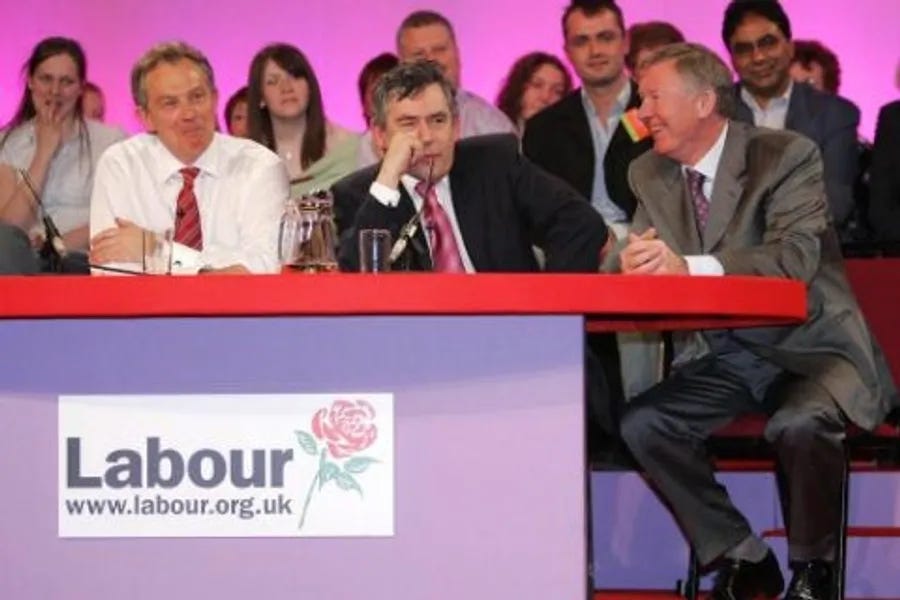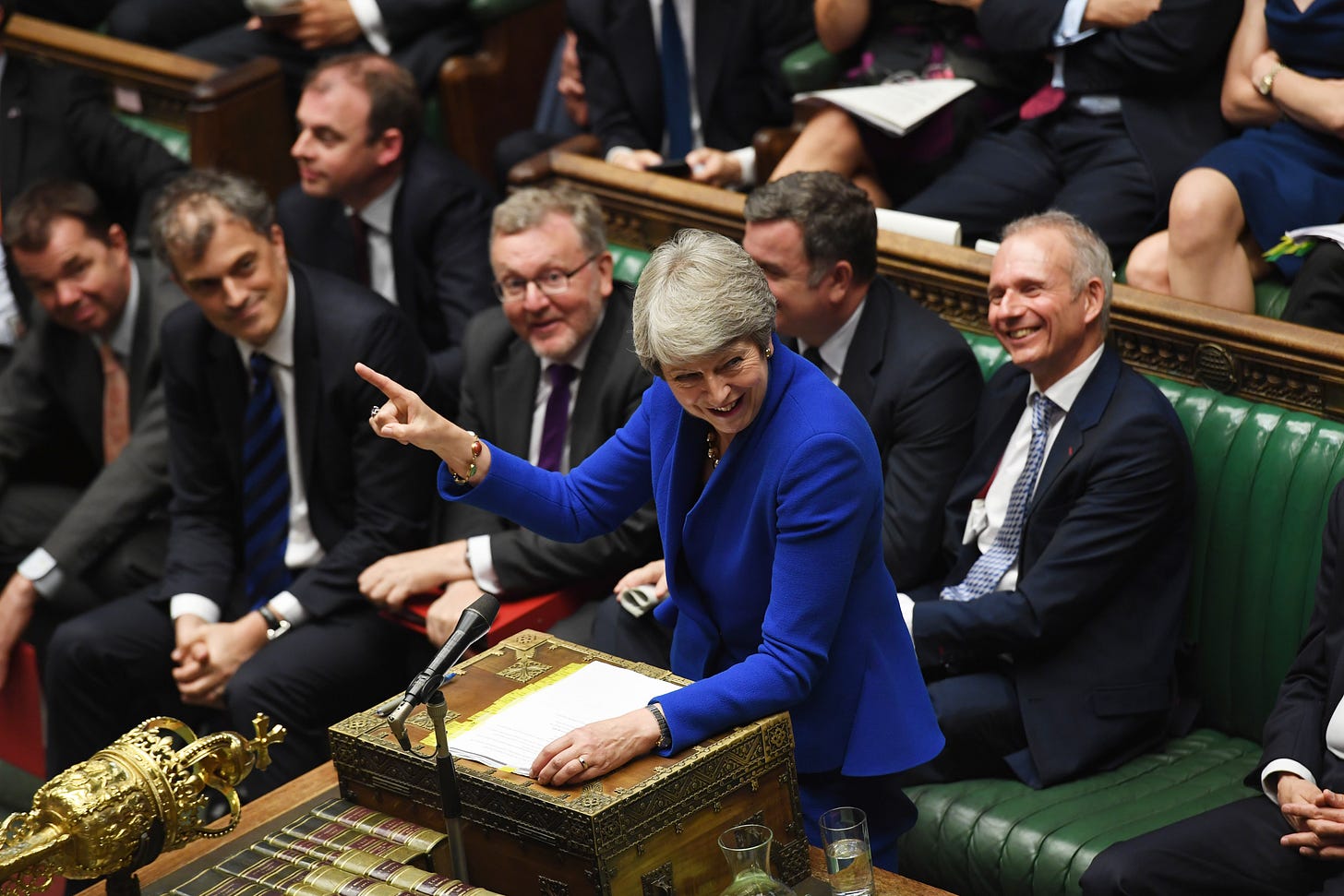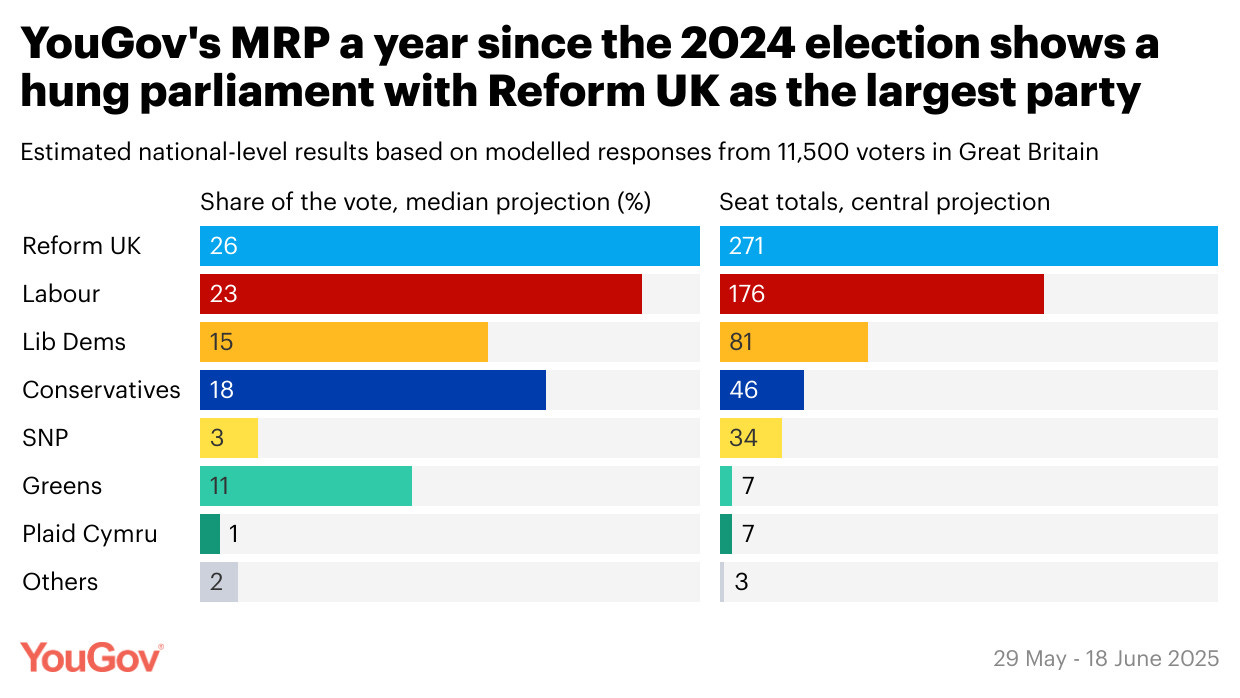Starmer faces a dressing room crisis
Win, lose or pull the welfare vote — relations within the party will be bruised
David Beckham, Jaap Stam, Roy Keane1: no matter how good you were on the field or influential in the dressing room, if you fell out with Sir Alex, you were not long for this world. In fairness to Ferguson, his decision to sever ties was usually vindicated.
By the summer of 2003, Beckham was on the downslope of his career and a certain Cristiano Ronaldo was waiting in the wings. As for Keane, his impact on the team had been eroded by the passage of time (he was 34) and a chronic hip injury, which forced his retirement soon after. Sir Alex would only come to regret the rushed sale of Jaap Stam to Lazio, later conceding, “I made a bad decision there.2”
It is a lesson in decisive leadership — and one that throws Tony Blair’s political dilemma into sharper relief. In his autobiography, A Journey,3 Blair reflects on his relationship with Gordon Brown. When one reads it and learns more about Brown’s disruptive — and towards the end increasingly destructive — behaviour, one wonders why Blair did not simply sack him, or at least dislodge him from his Treasury power base. Blair himself reflected:
“The answer to the question, ‘Would life have been easier if he were removed?’ seems so clear; however, the answer assumes that had he been sacked, everything else would have remained the same: i.e. it would have been the same world, minus Gordon. That’s not how politics works.”
To illustrate the point, Blair recalls a conversation with Ferguson, a Labour Party supporter:
‘What would you do if you had a really difficult but brilliant player causing you problems?” I would ask. ‘Get rid of them,’ he would reply. ‘And supposing after you got rid of them they were still in the dressing room, and in the squad?” I would say. ‘That would be a different matter,’ he would reply, laughing.”
The thing about politics — whether democratic or authoritarian, at the level of a nation state or parish council — is that it is fundamentally about people. This, incidentally, is why the best politicians actively enjoy the company of others. I speak as someone who has watched them up close: it is a bloody awful job if you don’t like spending time with colleagues and strangers. Your deeply held principles will not save you.
Keir Starmer is facing down a substantial rebellion over planned changes to welfare. More than 120 of his MPs have added their name to a motion opposing cuts to disability and sickness-related benefits that would save around £5bn a year by 2030. If the vote goes ahead, it is possible a government with a working majority of 165 will be defeated at second reading.
Of course, the reason why governments rarely lose votes is not only that they usually have majorities, but they do not press ahead when they expect to lose. This is basic stuff. To avoid defeat, the whips may offer personal inducements, changes to the bill, or worst-case scenario, pull the whole thing. But either way, relationships will be badly bruised.
First, there is the substance of the bill. Of particular concern to Labour rebels are the proposed changes to personal independence payments. Around 370,000 current recipients will no longer qualify while 430,000 future recipients will receive less, with the typical person losing £4,500 per year. The point of these changes is in large part to save money. This in isolation — given the vast amounts of money the UK spends on welfare — is perfectly reasonable. But it is not the argument the government is making.
Second, and potentially more alarming for the leadership, is the scale and make-up of the rebellion. At 126 MPs, that is almost a third of the Parliamentary Labour Party! This is not simply the usual suspects, but a wide spectrum of MPs across all factions. Indeed, the amendment itself was tabled by Meg Hillier, chair of the Treasury Committee, alongside 12 other committee chairs.
Third is the timing. The warning lights usually start flashing red for the whips office when, as governments grind on, the number of former ministers begins to exceed the parliamentary majority. You would be amazed how often the recently (and not so recently) dismissed, rediscover their principled objections to government policy. But Labour is less than a year into office!
Fourth is the handling — or lack thereof. According to Sky News’ Sam Coates, Downing Street seemingly had little idea of the scale of opposition. Meanwhile, Starmer’s characterisation of criticism from within his party as “noises off” is typical of the government’s tone-deaf operation.
There are only so many outcomes at this point. The government can hold the vote and win, hold it and lose, make concessions and win, make concessions and still lose, or postpone the vote. But in every scenario, the prime minister will have pissed off a lot of people.
If he U-turns, he will infuriate loyalists who stuck by him despite their own concerns over the bill. If he somehow wins by applying greater pressure, he will annoy the rebels. If he delays, the financial markets may take action of their own.
Perhaps the best news for the prime minister is YouGov’s first MRP poll since the general election, published this morning, which shows a hung parliament with Reform UK the largest party. Among the big names to lose their seats include Angela Rayner and Yvette Cooper. Nothing keeps a party together like the threat of impending doom…
Starmer can at least console himself that, unlike Blair, he remains on speaking terms with his chancellor. But unlike Ferguson, he is not in a position to sell or send 126 of his MPs to rot in the reserves. Win, lose or pull this vote, the relationship between Number 10 and the PLP will require more than a physio’s magic sponge.
This is not an exhaustive list. See also: Paul Ince, Mark Hughes, Ruud van Nistelrooy, Gordon Strachan, Andrei Kanchelskis et al
I was however quite pleased as Stam’s departure helped Arsenal to win the league title in 2002
The title was initially ‘The Journey’ but was changed over concerns it appeared, erm, a little messianic








Always enjoy your political analysis. And your use of English. So, forgive the pedantry, I feel moved to suggest it should be et al (and others) not etc (and other things). A fan.